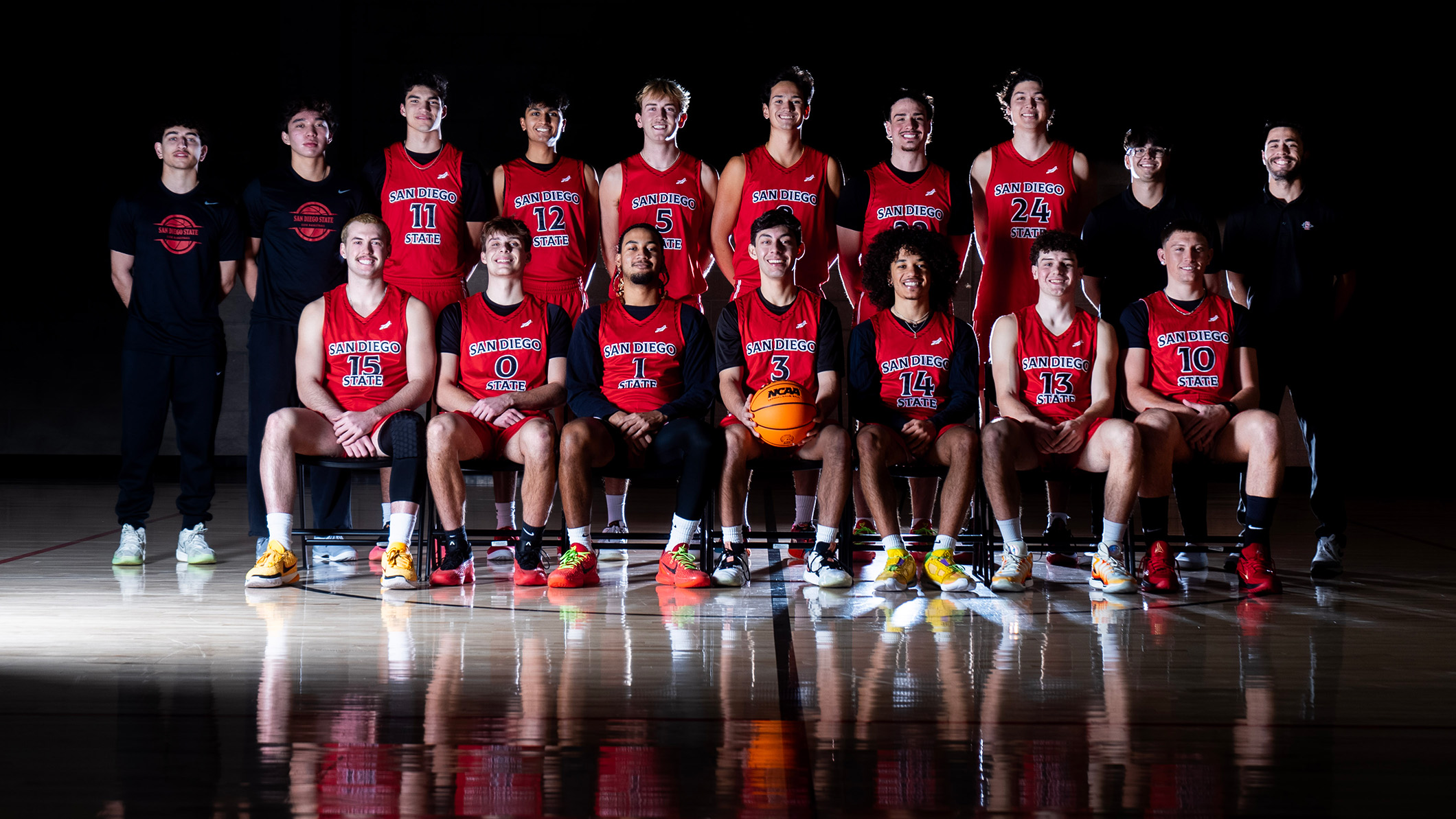Back to School: Public Spaces for the Not So Social
SDSU students return to in-person classes and prepare for campus life and events.

For more than two years, much of San Diego State University’s community has been physically isolated from one another with limited interaction and socialization. For some, it’s difficult to flip a switch back to a pre-pandemic lifestyle. Going from a computer screen every day in the comfort of home to an engaging, active university is not always an easy change.
This fall marks the second year of in-person instruction but some students are wrestling with social anxieties built up during the height of the pandemic. Colby Chlebowski, licensed psychologist and director of SDSU’s Psychology Clinic, defines people with anxiety as “having excessive worries that are difficult to control.”
At first glance SDSU can be overwhelming–the sheer size and student body population that make up the school’s ecosystem may be intimidating for any student but especially those who are not used to or are uncomfortable in large, crowded spaces.
According to Chlebowski, these excessive worries are either excessive in intensity, frequency, or persistence. “Some characteristics of anxiety are that these worries really interfere with daily activities in ways that normal worry doesn’t.”
“I think we are going to see a lot of students who need more support now in terms of getting help from our clinic on campus for example, to help them learn some strategies and skills so they can help navigate this difficult transition,” said Chlebowski.
Third-year kinesiology major Brandon Grimsley reflected on living in the residence halls before the COVID-19 pandemic and the loneliness of being isolated.
“My first year, especially living on campus, I was extremely introverted. Granted I did have some hard classes but I think I spent way too much time in my room,” said Grimsley.
His strategy against social anxiety is to work as an SDSU Ambassador, where he welcomes prospective students and their families and leads the way during tours. “I think when you feel more connected to campus you definitely feel less anxious and less like you don't belong,” he added.
Grimsley returned to campus last year in person, dealing with anxieties from before and after the pandemic. While there is still an eagerness to return to student life and activities after so long without them, some introverted students are hesitant to participate in community events, which must follow SDSU’s COVID-19 guidelines and mask mandates.
In addition, Chlebowski describes physical symptoms of anxiety as “things like a racing heart, sweating, trembling, difficulty breathing.”
Student concern for their physical health has also led to more anxiety about attending events safely while preserving their mental health as well.
“It's all about feeling where they are at and really not trying to push something if they are not that comfortable, and that's okay," said Amber St. James, a non-binary activist and drag performer, in response to the more introverted students they come across.
Often performing virtual and in person, St. James speaks to a growing social awareness of boundaries and allowing anxious students to leave their comfort zones without being pushed beyond their limits. The 2020 graduate continues to work on and off campus to plan events with the SDSU Pride Center.
As the semester gears up and students find themselves struggling with their mental health and any pandemic related issues, here are some resources in place for support:
Student Resources
SDSU (Live Well Aztecs) CAMPUS WELL Online health and wellness publication for students covering research-based info on managing stress, sleeping well, academic life, eating healthy, working out, mindfulness, sexual assault, maintaining relationships, and so much more.
Well-Being & Health Promotion
The Well-being & Health Promotion office aims to enhance the well-being of SDSU students in order for them to achieve academic success and establish lifelong healthy behaviors and attitudes to reduce the risk for disease and injury.
Counseling & Psychological Services
C&PS offers a wide range of services to help students obtain support for a variety of presenting concerns. These include individual counseling, couples counseling, group therapy, workshops, specialized programs, and therapy dogs.
Student Affairs/Diversity
Nine cultural centers facilitate the learning and growth of traditionally underserved students through programs and events that educate the campus; facilitation of intergroup dialogues to address pressing issues; and advocacy with campus stakeholders to create an institutional climate that supports SDSU students.
Economic Crisis Response Team
SDSU’s Economic Crisis Response Team (ECRT) aims to bridge the gap in resources for students experiencing immediate food, housing, orunforeseen financial crises that impact student success. Using a holistic approach to well-being, ECRT supports students through crisis by leveraging a campuswide collaboration that utilizes on and off-campus partnerships and provides direct referrals based on each student’s unique circumstances.
Psychology Clinic
The SDSU Psychology Clinic is a community mental health clinic operated by the Department of Psychology. It offers culturally sensitive, low-cost services to the San Diego community in English and Spanish. These services and treatment approaches are supported by scientific evidence and individualized to clients' needs.
Pride Center
The Pride Center at SDSU aspires to provide and promote a space where LGBTQIA+ and ally community members can explore, expand, evolve, and embrace their understanding of sexual orientation, romantic orientation, gender identity, and gender expression.
Student Ability Success Center
Services and accommodations are available to students with documented disabilities, including but not limited to students who have visual limitations, communication limitations, learning disabilities, psychiatric disabilities, attentional disabilities, mobility and other functional limitations, as well as those who are deaf or hard of hearing.
Student Life & Leadership
You can balance your time for learning, leading, and living by participating in activities with other students who share your same interests.
SDSU COVID Resources for Students
Nandi Maunder is a student assistant for SDSU NewsCenter.



